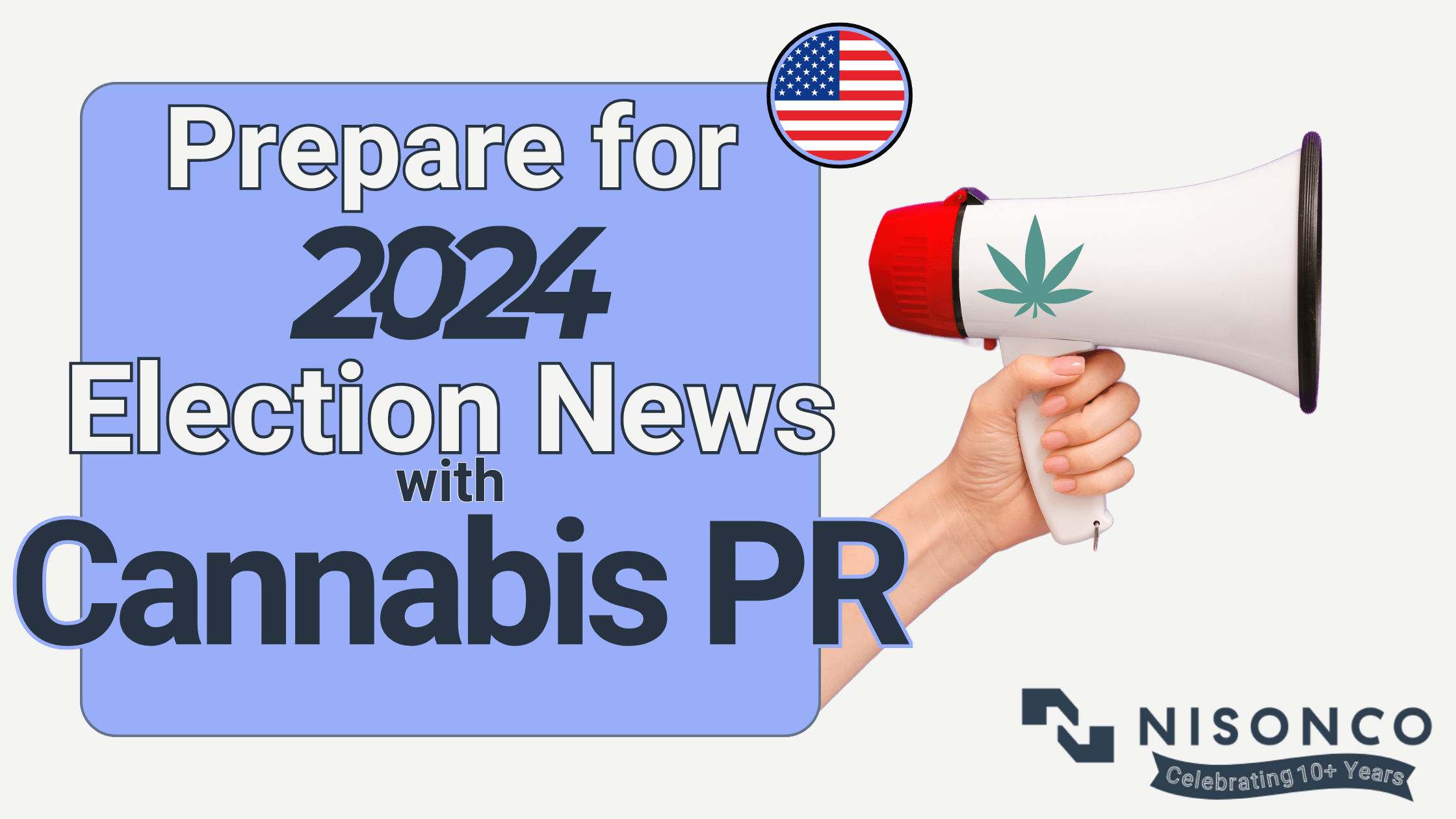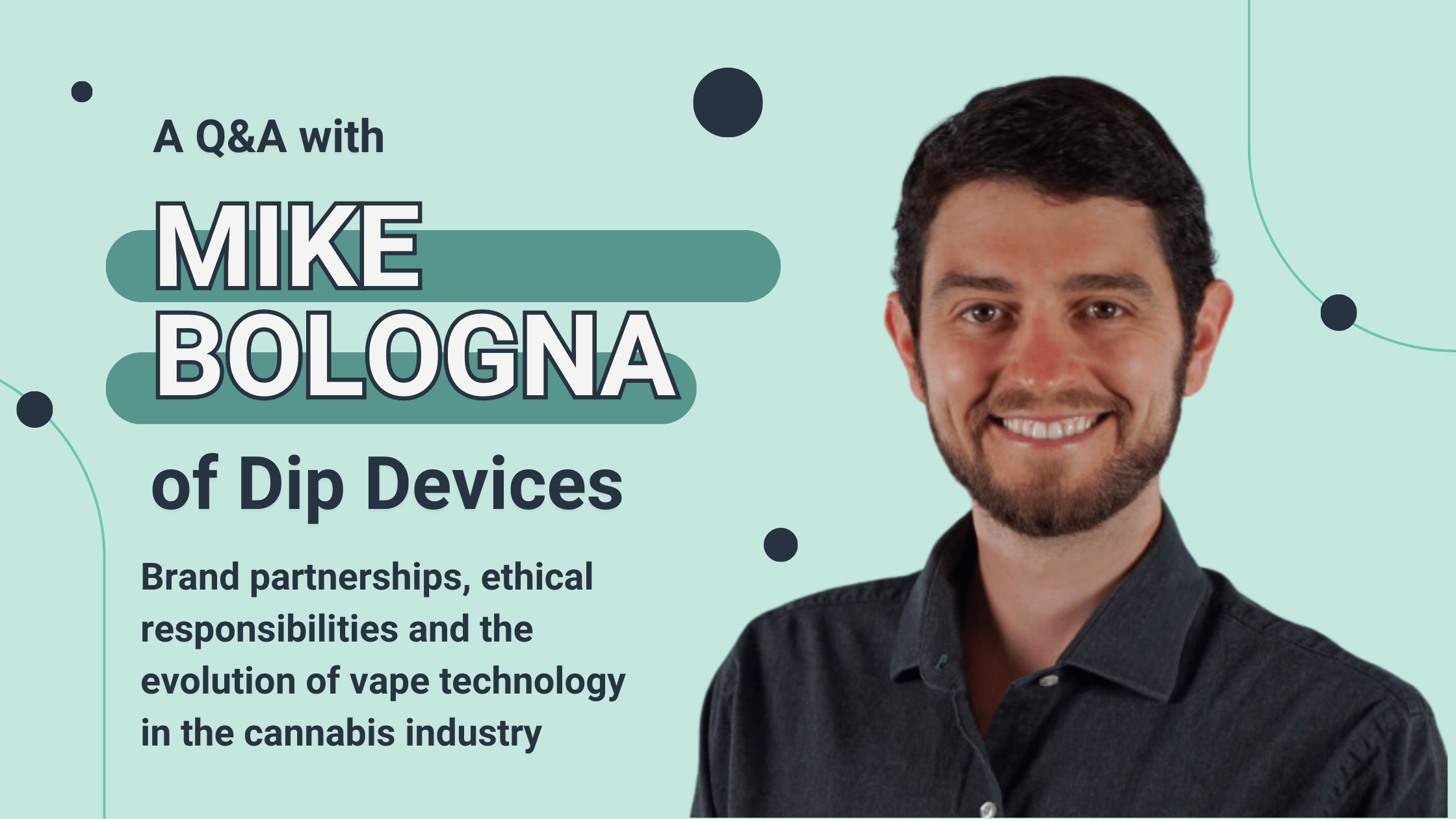It is an undeniable truth that words hold power. Nowhere is this more evident than the public relations and marketing world, where consumer perception defines a brand’s success. There’s a fine line to walk: play it too safe, and your company comes off as stale, outdated and unapproachable. Play it too edgy, like GreenTec Holding’s recent BLK MKT campaign, and you risk public outrage.
The simplest way to manage words with stigma is to address them head-on in your company protocol. Is it OK to say “pot” or “weed”? How about “getting stoned” versus “consuming”? We at NisonCo hope this look into some frequently used questionable phrases and terms in the cannabis industry helps create conversation at your company and inspires you to create an in-house style guide if you don’t have one already. As NisonCo Operations Manager Tori Gates points out, “When a brand has a style guide it’s the go-to source for how the brand talks and represents itself. Referencing the guide when writing or speaking will ensure that messaging is consistent and on-brand.” We don’t advocate for one usage over another, as cannabis consumers themselves report enjoying classic, countercultural terms like “pothead” or “stoner,” but invite you to examine the terms which your brand aligns most closely to.
1. What do I call this stuff? Cannabis vs Marijuana vs Weed vs Pot vs…
You may be asking yourself why there are so many terms for the devil’s lettuce — reefer, ganga, grass, dope, it goes on. Many nicknames developed for the plant because cannabis was illegal for so long. This is true of any substance or activity that is illicit, such as in the age of alcohol prohibition, when slang terms like “booze” and “sauce” that we still use today became popularized.
Many people who consume cannabis are proud of terms like “pot,” “weed,” “ganga,” or “reefer” because they are a nod to a time when they were pushing the envelope of normalized cannabis usage. These words are at an in-between place where some brands may find them to be useful in remaining consistent with brand tone, but other companies may decide to nix them from the verbage lineup.
Technically speaking, the scientific name of the genus in question is Cannabis Sativa. On the whole, we at NisonCo find “cannabis” to be the most accurate and least offensive term across the board.
The word “marijuana” has recently come under fire for potentially racist connotations, in relation to Mexican use and law. In the 1920s when cannabis was outlawed, Mexicans began using women’s names as code for the plant. The thought is that “marijuana” is a mash of “Maria” and “Juana,” which is also where we get the term “Mary Jane.” The word was picked up when the United States sought to pass laws against Mexican and other foreign human rights. At a hearing in the 1920s, Commissioner Harry Anslinger (first commissioner of the U.S. Treasury Department’s Federal Bureau of Narcotics) gave testimony that, “There are 100,000 total marijuana smokers in the US, and most are Negroes, Hispanics, Filipinos and entertainers. Their Satanic music, jazz and swing result from marijuana use. This marijuana causes white women to seek sexual relations with Negroes, entertainers and any others.”
As stated previously, many cannabis consumers are looking to “take back” terms like “pot” and “weed,” and “marijuana” is no exception. Still, it’s essential as a brand to recognize the history that entrenches such terms and then make definitive style decisions around usage.
2. What to call the act: Consuming vs Getting High vs Medicating
“Consuming” is the safe call between terms, as it doesn’t carry negative connotations and has a clear meaning.
“Medicating” vs “high,” however, is a dichotomy that spreads farther than just cannabis. For example, at a hospital you may be “medicated” with oxycontin, but if you took the same substance in heroin form, you would be “high.” The same problem is apparent in cannabis consumption: is there a negative association with “getting high?” There are positive “highs” in our lexicon — runner’s high, being high on life, etc. Hopefully given time, being “high” on cannabis will carry a purely positive connotation — perhaps one your brand can help forge if your team and customers are comfortable with the word.
Many cannabis brands that are centered around medical and health-related products use the term “medicating,” to make it clear that consumption is beneficial to consumer health. As the medicinal benefits of general cannabis consumption continue to come to light, non-medical brands are also adopting the term “medicate” as well.
3. How about the human? Consumer vs Patient vs User vs Stoner
Like the term “consuming” for usage, “consumer” is likewise a clear term without negative associations.
Words like “pothead” or “stoner” fall under the category of customer preference, like slang terms for cannabis do. If it fits the brand and customers like it, then those words are fine for your company. While they carry negative connotations in terms of historical use, in modern use it’s more of a mixed bag. Brands like MedMen have even run campaigns like “Forget Stoner” to try and shatter cannabis-user stereotypes, while other brands take pride in the term.
“Patient” fits best for medical users, who require a prescription from a practicing licensed doctor to purchase cannabis. It shouldn’t be used otherwise.
“User” is often a word that is mixed up with “abuser” in connotation. If we say someone “uses,” we often mean that they misuse a substance. At NisonCo we attempt to avoid this term in favor of “consumer.”
4. Is it wrong to say “black market?”
“Black market” may be one of the most contentious terms on our list. Within the last few years, there has been a general shift in the cannabis industry and other emerging industries away from this term. The reasons why are numerous, among them associations of racism and classism.
In particular, industry leaders in cannabis are finding “black market” is dismissive of the groundwork that illicit cannabis growers laid on the road to legalization. Luckily, if your brand also decides to move away from the term, there are plenty of supporting phrases you can substitute.
More cut-and-dry replacements for “black market” are “illicit market” or “unregulated market,” but these terms still don’t acknowledge how important “black market” cannabis growth was to the current industry.
Instead, emerging phrases with positive associations and a nod to history include “self-regulated market,” “pre-regulated market,” or “legacy market,” the latter of which was popularized by Danielle Jackson (Miz D), a Vancouver-born artist, advocate and entrepreneur.
Regardless of the choice your brand makes for usage, it’s important to acknowledge the growing conversations and movements around contentious terms like “black market.”
5. Use the right term — Legalize vs Regulate vs Reschedule vs Deschedule
There are many pathways cannabis laws and rules can travel, and it’s essential to correctly use the terms in company communiqués
Legalization is the action of making something that was previously illegal permissible by law. Many times when the word “legalization” is used in relation to cannabis when the term actually meant is either “descheduling” or “rescheduling.”
Regulation is the action or process of regulating or being regulated. It’s important to note that regulation doesn’t necessarily indicate legal impact or authority. For example, sporting leagues have regulations that aren’t associated with laws of any kind.
While the above terms are fairly self-explanatory, the differences between descheduling and rescheduling are more involved. The crux of the issue is the Controlled Substance Act. Currently, cannabis is a Schedule 1 substance, which means it has “no medicinal value” and “poses a high potential for abuse.” Other Schedule 1 substances include heroin, LSD and MDMA. To reschedule cannabis means to change its classification to another scheduling group for the purpose of monitoring medically. In addition, rescheduling would make it possible to conduct research on the medicinal benefits of cannabis, which are not available under its current schedule.
Descheduling, by contrast, removes cannabis from the Controlled Substance Act altogether, and out of control of the Food and Drug Administration. The benefits of descheduling over rescheduling is that states which have already regulated cannabis would be protected against federal enforcement, there would be an increase in tax revenue, access to federally-regulated banks, and criminal justice reform, to name a few.
As states continue to legalize some form of cannabis, the federal government will be left with no other choice than to either deschedule or reschedule the plant, and doubtless your brand will have something to say about it. Be sure to choose your legalese correctly.
6. What am I smoking? Indica vs Sativa vs Cannabinoid and Terpene Profiles
When entering a dispensary and reading a standard menu, the customer often sees three options for cannabis classifications: indica, sativa, or hybrid. The truth is the distinction doesn’t exist between the varieties due to crossbreeding, if it ever did exist at all.
A biologist from the 1700s named Jean Baptiste Lemarck is who we have to thank for the distinctions he noted when smoking different cannabis varieties (the short one named indica, the tall one sativa), but modern biologists point to more meaningful differences in terpene profiles than the aged classifications indica vs sativa.
So why do we still see the terms everywhere? Good marketing practices dictate using terms the buyer is familiar with, and that’s why the words stick it out into modernity. But just as Lemarck tried smoking different varieties of cannabis and naming them accordingly without much scientific backing, so do cannabis companies classify “indica” or “sativa” based on how they generally affect a smoker.
In reality, the most influential parts of a cannabis plant are the cannabinoid and terpene components. Cannabinoids interact with your brain’s endocannabinoid system; THC and CBD are the most commonly known cannabinoids. Terpenes are aroma compounds found in all plants, and there’s growing evidence that cannabis’ terpenes play a big role in psychoactivity.
Looking into the future, it’s likely brands will move away from terms like “indica” and “sativa” altogether in an effort to more exactly match cannabis with consumers. In the meantime, if your brand uses the terms, it must be acknowledged and understood that they don’t actually mean much.
7. What do you mean I can’t call it a “strain”?
“Strain” is a word best scientifically reserved for bacteria, fungi and viruses.
The word you’re looking for is “variety.” In particular, the very scientific word you’re looking for is “chemovar” or “chemical variety.” As noted in the above section, the physical differences between plants do not provide information about the effects that plant will have, so chemical analysis is the best bet for accurate consumption results.
You may also see the term “cultivar” floating around. A cultivar is a plant variety that has been produced in cultivation by selective breeding. Technically this is true of all regulated cannabis, and like the term “strain,” doesn’t actually provide much information about the chemical components of the variety that are so essential.
8. CBD: Non-psychoactive or non-intoxicating?
The World Health Organization defines any substance that affects mental processes, such as cognition, as “psychoactive.” By this definition, CBD could be considered psychoactive, but the key distinguishing factor is that CBD is non-intoxicating, even at concentrations well beyond what most people would ingest.
The reason? CB1 receptors in the central nervous system and brain are able to accept THC, but not CBD, meaning your system cannot be intoxicated by it. It’s a small distinction, but important to use correct terminology for your brand so it’s apparent your company is informed about the hard science of CBD in the body.
9. Are “recreational” and “adult-use” the same thing?
According to Merriam-Webster, a “recreational drug” is one without any medical benefit, and we know in regards to cannabis that is not the case. Many argue the term “recreational cannabis” brings to mind being playful, and generally takes away the gravity of legalization and regulation.
For example: we don’t refer to adults partaking in legal imbibement as doing “recreational alcohol.” Likewise, the phrase is not all-inclusive. What about those who use the plant only for medical use in a “recreational” state or spiritually, in a ceremonial function?
By contrast, the phrase “adult-use” brings to mind responsible consumption in appropriate settings, and encompasses all consumers and their practices. This is why most states create “adult-use” cannabis laws and not “recreational” cannabis laws.
10. In the PR business? Don’t call it a “spin”
Technically this one isn’t a cannabis term, but we thought it was important anyway. A “spin” in the PR world is a type of propaganda, achieved through knowingly providing a biased interpretation of an event or campaigning to influence public opinion about some organization or public figure. If you’re the person crafting these messages, you may be called a “spin doctor.”
When taking an angle on a public communication, the important thing is to be honest, open and don’t put a “spin” on it.
Need advice on crafting a journalist PR pitch? Check out our prior blog post: 5 Tips For Crafting Journalist-Friendly PR Pitches.
In Conclusion: Are we being too sensitive?
In recent years as much as there’s been a rise of “political correctness,” there’s been an equal backlash that maybe we’re all being a little too sensitive. But the thing is, being “politically correct” doesn’t have anything to do with being “correct” at all — it has to do with being conscientious about what words you use in what context. Because consumer perception defines a brand success, the best bet is to play to your audience. So choose what terms you like for your company handbook, but have the prescience to examine the differences between them and their impact on your brand and customers.
NisonCo is a cannabis PR firm. Would you like help crafting the perfect PR communications and language for your company? Contact us here.



